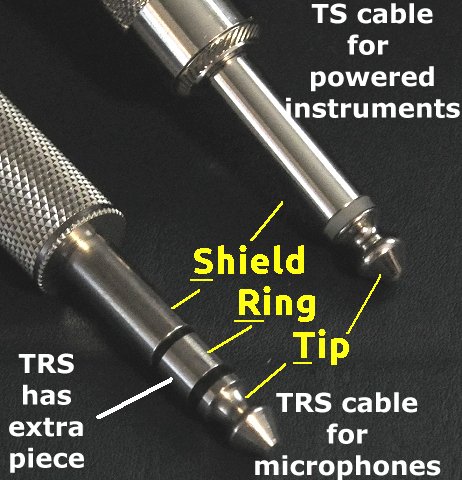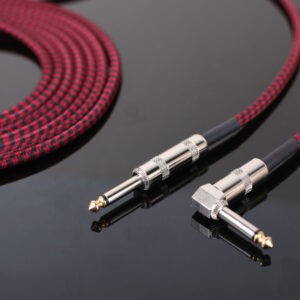When it comes to distributing or wholesaling musical instruments, understanding the intricacies of guitar cable connectors can make a substantial difference in how you position and sell your products. Guitar cables are essential accessories for both beginners and professionals alike, and the quality and variety of cable connectors you offer can impact your business’s reputation and sales. In this article, we’ll break down the key points about guitar cable connectors to help you make informed decisions for your inventory.
1. Types of Guitar Cable Connectors

The most common guitar cable connectors are the TS (Tip-Sleeve) connectors, often referred to as 1/4-inch connectors. These are the standard for most electric guitars, bass guitars, and amplifiers. The TS connector is mono, meaning it carries a single signal (which is typical for electric instruments). For distributors and wholesalers, carrying high-quality TS connectors is essential since they are the go-to choice for most musicians.
Another type of connector that is worth noting is the TRS (Tip-Ring-Sleeve) connector. TRS connectors are commonly used in balanced audio systems or stereo applications, such as patch cables for effects pedals or audio interfaces. They can also transmit stereo signals, making them ideal for some studio environments. Offering these as part of your inventory will appeal to studio musicians or tech-savvy customers who need more complex setups.
2. Connector Quality Matters
The quality of the connector directly affects sound transmission and durability, which are key concerns for musicians. Gold-plated connectors offer superior conductivity and corrosion resistance compared to standard nickel-plated ones. While gold connectors may come with a higher price tag, they provide a higher-quality signal and are less likely to degrade over time, making them a worthwhile investment for professional musicians.
For wholesale buyers, stocking different levels of connectors, such as both nickel and gold-plated options, allows you to cater to various customer segments. Budget-conscious consumers might prefer the standard nickel connectors, while professionals or studios would appreciate the higher-end gold-plated options.
3. Right-Angle vs. Straight Connectors

One feature that should not be overlooked is the shape of the connector. Straight connectors are the most common, but right-angle connectors are also popular, especially for musicians who need space-saving solutions in their pedalboards or when connecting a guitar in tight spaces. Right-angle connectors reduce cable strain, which extends the life of both the cable and the instrument jack.
Offering both straight and right-angle connectors as part of your product lineup can increase your appeal to different types of customers. Guitarists with specific performance setups, such as complex pedalboards, may prefer right-angle connectors, while others will stick with straight connectors for simplicity and flexibility.
4. Cable Shielding and Noise Reduction
The importance of shielding in guitar cables cannot be overstated. Proper shielding prevents unwanted noise, hum, and interference, which are all too common in environments with multiple electronic devices or poor grounding. Braided shielding and foil shielding are two common types, with braided offering more durability and flexibility but at a higher cost.
Distributors should educate retailers and customers on the importance of shielding, particularly for live performance or studio settings. Offering cables with strong shielding options will increase the perceived value of your products and attract more discerning customers.
5. Durability and Quick deliver
Durability and quick delivery are essential for musical instrument distributors and wholesalers. Offering robust, long-lasting products minimizes returns and ensures customer satisfaction. Fast delivery ensures timely stock replenishment, meeting retailers’ demands and keeping their shelves stocked with reliable, high-quality products that musicians can trust
6. The Bottom Line: Offering Variety and Quality
In the competitive world of musical instrument distribution, carrying a wide variety of guitar cable connectors—while ensuring they meet the needs of different customer segments—is crucial. From stocking both straight and right-angle connectors to offering a range of plating and shielding options, having diverse products will make your inventory more attractive to retailers and individual customers alike.
By emphasizing connector quality, durability, and compatibility, you can position yourself as a trusted supplier in the industry, helping musicians get the best possible performance out of their instruments.